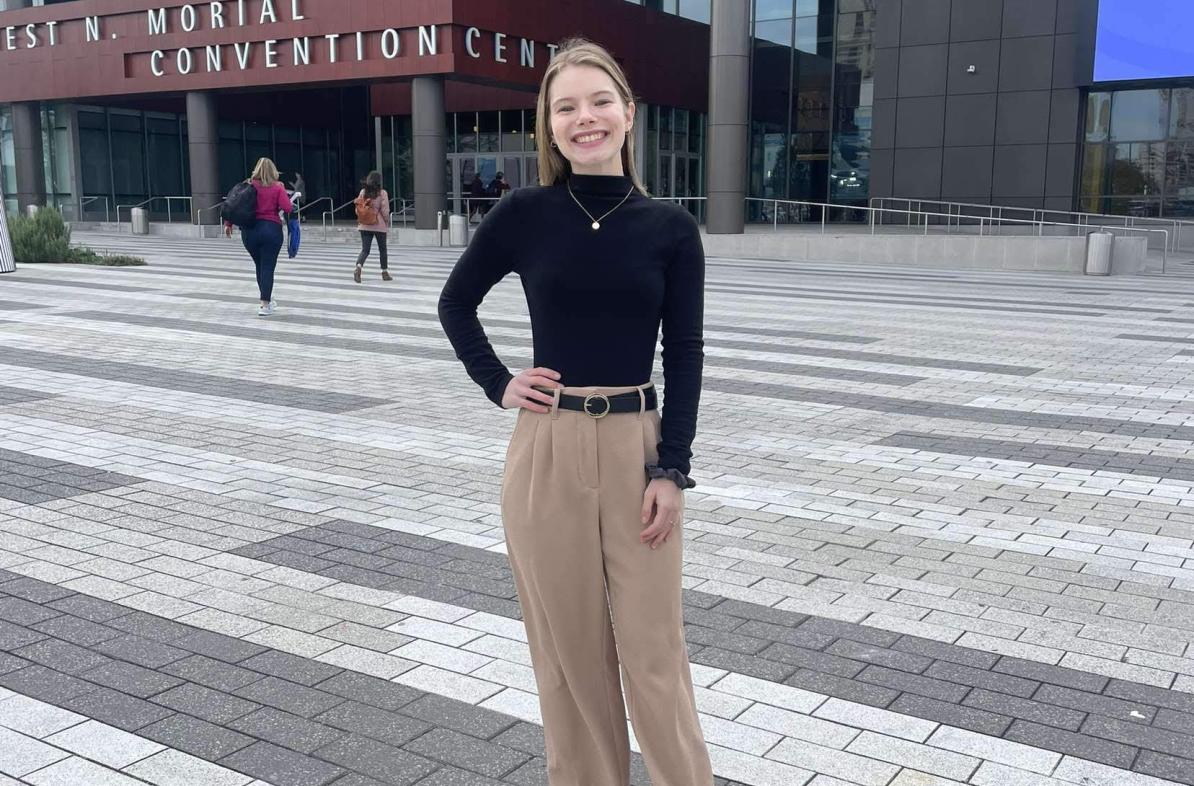ID

Building her career plans around empathy and cultural awareness: Samantha Ruppert ’22
Story Categories
Authored on
Building her career plans around empathy and cultural awareness: Samantha Ruppert ’22
Published on:
Intro text
At the University of Wisconsin-Eau Claire, experiences beyond the classroom often have significant impact on academic and future career success, and few soon-to-be graduates exemplify this as clearly as communication sciences and disorders (CSD) major Samantha Ruppert.
Sections
For the media
For the media
Image download


